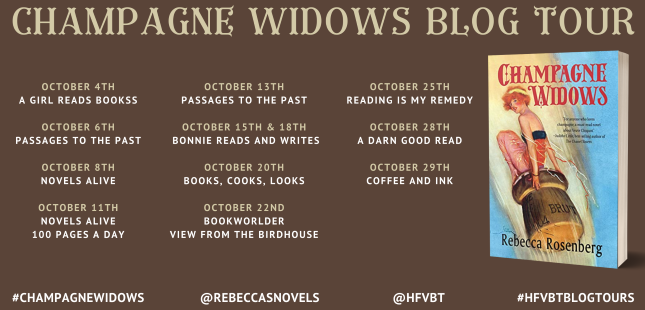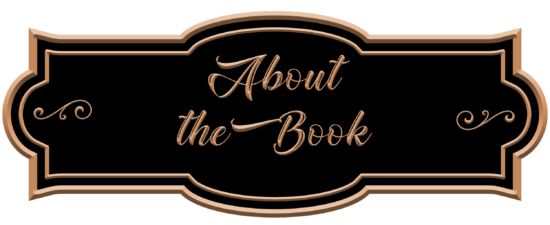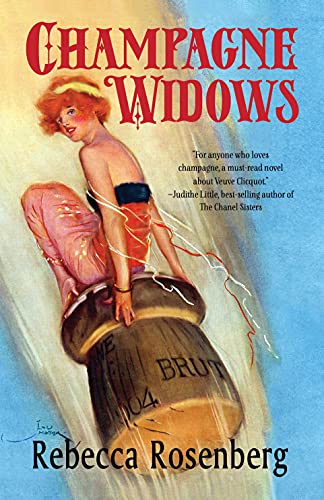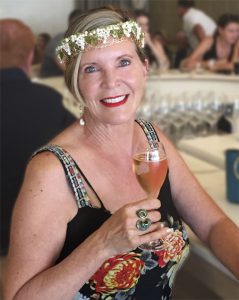 For centuries, women have faced the devastation of pandemics and roadblocks of sexist laws. Yet, one of them, the audacious and determined Barbe-Nicole Clicquot, found a way to build a champagne empire despite the hardships.
For centuries, women have faced the devastation of pandemics and roadblocks of sexist laws. Yet, one of them, the audacious and determined Barbe-Nicole Clicquot, found a way to build a champagne empire despite the hardships.
In 1805, the Typhoid Fever pandemic swept through the Champagne region of Reims, France, and took the life of champagne house owner Francois Clicquot, who suffered from mental illness. His young wife, Barbe-Nicole, was left a single parent to a six-year-old daughter. Her father-in-law promptly informed Clicquot winery customers, employees, and vendors they were closing the doors.
Under Napoleon Code, she inherited only a quarter of her husband’s property, the rest reverting to his family. Now known as Veuve (widow) Clicquot, Barbe-Nicole needed money to support herself and her daughter and was dismayed that their champagne winery would be taken from her. In a time when married women were prevented from owning a business in France, she found a loophole. Seeking legal advice, she learned that a widow could own a business and property. She’d never run a business or handled finances, but Barbe-Nicole was determined to continue the champagne house. She bargained with her father-in-law to carry on the winery, which he agreed to on the condition he chose a male business partner for her.
Despite her ambitions and best intentions, her first steps in the male-dominated world of wine-making were doomed. She started this new venture in the middle of thirteen years of Napoleonic wars (1803-1815). As Napoleon fought to rule Europe, he blocked trade between countries and destroyed Europe’s economy, making it nearly impossible to sell wine. By 1810, Veuve Clicquot’s business partner knew their venture failed and broke off the partnership.
On her own again, her father-in-law pressed her to close the winery and stem the losses. In the face of rising doubts and mounting debt, Barbe-Nicole became more determined. She boldly rebranded the winery as Veuve Clicquot-Ponsardin, using her title, widow (Veuve) and adding her maiden name, so there would be no mistake who was making the wine. Veuve Clicquot-Ponsardin was the first champagne house owned by a woman.
The next few years were bleak for the single mother managing the vineyards and winery alone. Napoleon and his French army waged two more wars; the Fifth Coalition War with Austria and Britain and the Peninsular War with Spain. In 1812, Barbe-Nicole’s champagne sales fell from a peak of 130,000 bottles to 10,000 bottles. She used those dark years to improve the wine. Champagne in the early 1800s was unpredictable and mysterious. It could grow snakes of yeast, be flat and lifeless, or murky with frog’s-eye bubbles. Barbe-Nicole invented new methods to enhance her champagne’s clarity and taste. Eventually, she created the riddling rack, a large board with holes to store wine bottles neck down. A gentle rotation of the bottle slid sediment down into the bottleneck for easier removal. This method of riddling bottles and the riddling rack are still used in champagne making today.
“The world is in perpetual motion, and we must invent the things of tomorrow. One must go before others, be determined and exacting, and let your intelligence direct your life. Act with audacity.”
–Barbe-Nicole Clicquot
The Great Comet of 1811, known as Napoleon’s Comet, streaked across the sky for one million miles and was visible for more than two hundred and sixty days. Prophets said the comet predicted Napoleon’s invasion of Russia and the war of 1812. But, for Barbe-Nicole, the Great Comet of 1811 brought the most magnificent and bountiful grape harvest of a decade. Using her new techniques and skills, she crafted an exquisite champagne that would make her famous. Le Vin de Comète was the first vintage champagne ever made, using only grapes from that comet year instead of the traditional method of blending wines from different years.
While Barbe-Nicole aged her Vin de la Comète in the chalk caves under her winery, France remained in turmoil as Napoleon waged the Sixth Coalition war against Prussia, Sweden, Austria, Russia, the United Kingdom, and several German states. In 1812, he marched his Grand Army of half a million soldiers to Moscow. When they arrived, Moscow was deserted and burned by the Russians. Napoleon had to march his army back across the vast frozen wilderness in the winter. Bitter winds froze the horses in place. Men died of Typhus and other diseases. Battling peasants and Cossacks on the way back, Napoleon’s Grand Army dwindled to ten thousand men.* When Napoleon heard of a coup d’etat in Paris, he abandoned his army and fled back through Barbe-Nicole’s town of Reims, seeking lodging at her father’s house.
Prussians, Cossacks, and Russians invaded and occupied Reims until Napoleon abdicated in March 1814. Finally, the time had come for Barbe-Nicole to launch the audacious strategy she had been planning. She hired a Dutch vessel, packed it with 10,550 bottles of Clicquot champagne, and sent it with her salesman, Louis Bohne, through the Baltic Sea.
He found an eager market starved for fine wine and other luxury goods. “Our ship is the first for many years to sail North…with a cargo of champagne,” Bohne wrote. He immediately sold out his stock in Konigsberg and St. Petersburg. Barbe-Nicole sent another ship with 12,500 bottles.
By Autumn, they had 70,000 bottles committed. Barbe-Nicole worried they would run out. “What a lovely problem to have,” Bohne wrote. Veuve Clicquot-Ponsardin rocketed to 280,000 bottles in 1821. Survival of the champagne house was assured. Had Barbe-Nicole remarried, her business and power would have been ceded to her new husband. Instead, by remaining a widow until she died in 1866, Veuve Clicquot gave us a model of strength, creativity, and vision as she used her intelligence, tenacity, and sheer guts to break through the chaos and confusion in the world around her.
Rebecca Rosenberg is an award-winning author of historical novels celebrating creative, fearless women who broke the rules to make them better. Her forthcoming novel Champagne Widows tells the story of the first woman to build the champagne industry. Coming in print March 1, 2022, in time for Women’s History Month.
*Olson, Pasachoff & Pillinger 1999, p. 138., Riehn 1990, p. 390.
Contact information: Rebecca Rosenberg, 707-548-8648, rebecca@rebecca-rosenberg.com

ePublication Date: October 1, 2021
 Triple-gold-medal-winning author Rebecca Rosenberg serves up a triumphant tale of talent and ambition, love and loss, betrayal and redemption, and accepting yourself and others for who they are.
Triple-gold-medal-winning author Rebecca Rosenberg serves up a triumphant tale of talent and ambition, love and loss, betrayal and redemption, and accepting yourself and others for who they are.
Champagne, France, 1800
Twenty-year-old Barbe-Nicole has inherited Le Nez (an uncanny sense of smell that makes her picky, persnickety, and particularly perceptive) from her great-grandfather, a renowned champagne maker.
Her parents, however, see Le Nez as a curse and try to marry her off to an unsuspecting suitor. But Barbe-Nicole is determined to use Le Nez to make great champagne. When she learns her childhood sweetheart, François Clicquot, wants to start a winery, she rejects her parents’ suitors and marries François despite his mental illness.
The Widow Known as Veuve Clicquot
Soon, Barbe-Nicole Clicquot must cope with her husband’s death. Becoming a widow known as Veuve Clicquot, she grapples with a new overbearing partner, the difficulties of making champagne and the Napoleon Codes preventing women from owning a business.
All this while her father takes a military uniform contract from Emperor Napoleon Bonaparte, who wages six wars against European monarchs, crippling Veuve Clicquot’s ability to sell her champagne.
Challenging Napoleon
Using Le Nez, Veuve Clicquot struggles through unbearable hardships and challenges Napoleon himself. When she falls in love with her sales manager, Louis Bohne, who asks her to marry, she must choose between losing her winery to her husband, as dictated by Napoleon Code or losing Louis. In the ultimate showdown, Veuve Clicquot risks imprisonment and even death as she defies Napoleon.

“For anyone who loves champagne, a must-read novel about Veuve Clicquot.”
~ Judithe Little, best-selling author of The Chanel Sisters
”These first known women of Champagne/Sparkling winemaking may not have even realized how strong they were until they had to learn and do it all to survive for themselves and their wineries! Reading Champagne Widows makes it even more of an honor to learn a craft still dominated by men.” ~ Penny Gadd-Coster, Executive Director of Winemaking, Rack & Riddle
“The sun-drenched vineyards of France, a real-life heroine who against all odds refuses to give up her dreams… and champagne. What’s not to love? And that’s just what Rebecca Rosenberg delivers in Champagne Widows. Barbe-Nicole Clicquot was a woman ahead of her time, a fascinating blend of ingenuity, heart, and sheer tenacity, with a nose for wine and a head for business. A 19th century widow who built an empire as war raged all around her. Note: This richly woven tale is best savored slowly, though with all delicious things, it won’t be easy.” ~ Barbara Davis, best-selling author of The Last of the Moon Girls.
“Champagne Widows is a witty, accomplished novel, featuring a tough and charming heroine of the first order. One can’t help but root for Barbe-Nicole, an astute businesswoman who brilliantly holds her own against none other than Napoleon Bonaparte. Although the events unfold two centuries ago, the story feels so modern, the characters could be your friends and neighbors. As easy to love as a glass of Veuve Clicquot, this may be Rebecca Rosenberg’s best book yet.” ~ Michelle Richmond, best-selling author of The Marriage Pact
“Champagne Widows is an inspired story based on the real-life Grande Dame of Champagne, Barbe-Nicole Clicquot Ponsardin, who built her famous champagne empire amidst the turbulence of 19th century France. Barbe-Nicole is my kind of heroine: a woman with passion, courage, family loyalty, and a killer business sense. Rebecca Rosenberg’s sensual details make every scene of this intimate novel come alive. A true reading pleasure!” ~ Martha Conway, best-selling author of The Underground River and The Physician’s Daughter
“Award-winning author, Rebecca Rosenberg returns with another Historical Fiction jewel in CHAMPAGNE WIDOWS. Meet the women who succeeded in creating world class champagne in a time men ruled business and society. Lovers of history, romance, and French culture will relish the multi-layered plot and cast of characters including the ultimate French icon, Napoleon Bonaparte.” ~ Johnnie Bernhard, award-winning author of Sisters of the Undertow
“An epic story featuring love, family, and the sustaining power of courage. Champagne Widows takes the reader back in time for an intimate look at the building of the iconic brand Veuve Clicquot. In the aftermath of Napoleon’s rise to power, Barbe-Nicole and her husband Francois share a vision of creating a champagne that will astound the world. Despite war, death, blockades, and failed harvests, Barbe-Nicole ultimately succeeds.” ~ M.K. Tod, author of Paris In Ruins and award-winning blog A Writer of History
“Raise a glass to Veuve Clicquot and all the women from history to the present, who have broken the mold and overcome obstacles to succeed in all-male professions. Just as a champagne bottle pops bringing delectable flavors and delicious aromas, Rebecca Rosenberg delights the senses with her engrossing novel. She treats the reader to a perfect blend of history and story – with lots of champagne! Sit back and savor the tale of Veuve Clicquot. ” ~ Linda Rosen, author of Sisters of the Vine
“Rebecca Rosenberg has penned a spectacular saga about the first “Champagne widow” of France, Barbe-Nicole Clicquot. With her gift, known as Le Nez (the nose), Barbe-Nicole can “smell the stink of a lie or the perfume of a pure heart. Or the heartbreaking smell of what could have been.” Along with her expertise, she possesses courage and vision, overcoming incredible odds during the time of the Napoleonic Code, which left widows without property rights—in Barbe-Nicole’s case, her Champagne business. Seamlessly interwoven with historical letters from Napoleon, the book sweeps the reader into the early nineteenth-century world. But it’s her imaginative tale of Veuve Clicquot’s personal life that captured me and wouldn’t let go until the end, leaving me wanting more!” ~ Susan Cushman, author of John and Mary Margaret
“An independent woman of indomitable strength, determined to find her way in a man’s world. Champagne Widows is vintage storytelling.” ~ Jean M. Roberts, author of The Heron
“Rebecca Rosenberg transforms history into literary art. Her prose sparkles, bringing centuries-old characters to life with wit, heart and bon mots. Treat yourself to Champagne Widows, and marvel at Rosenberg’s gift for making every sense sing.” ~ Carol Van Den Hende, award-winning author of Goodbye, Orchid
“Like the best wines, Rosenberg’s Champagne Widows will entice you with its complexity as it balances the story of a widow’s determination to produce the world’s greatest champagne in the face of Napoleon’s path of destruction. If you love France, historical fiction, underdog stories, strong women, or wine, then pop a cork to celebrate this perfect blend of a novel.” ~ Mary Helen Sheriff, author of Boop and Eve’s Road Trip


 10 winners will receive a prize pack including a signed copy of Champagne Widows, champagne earrings, champagne jellybeans, champagne bubbles, and a champagne bath bomb!!
10 winners will receive a prize pack including a signed copy of Champagne Widows, champagne earrings, champagne jellybeans, champagne bubbles, and a champagne bath bomb!!
The giveaway is open to US addresses only and ends on October 29th. You must be 18 or older to enter.

 California native Rebecca Rosenberg lives on a lavender farm with her family in Sonoma, the Valley of the Moon, where she and her husband founded the largest lavender product company in America. A long-time student of Jack London’s work and an avid fan of his daring wife, Charmian, Rosenberg is a graduate of the Stanford Writing Certificate Program. Her books include: GOLD DIGGER, the Remarkable Baby Doe Tabor, The Secret Life of Mrs. London, Lavender Fields of America, and the Champagne Widows series.
California native Rebecca Rosenberg lives on a lavender farm with her family in Sonoma, the Valley of the Moon, where she and her husband founded the largest lavender product company in America. A long-time student of Jack London’s work and an avid fan of his daring wife, Charmian, Rosenberg is a graduate of the Stanford Writing Certificate Program. Her books include: GOLD DIGGER, the Remarkable Baby Doe Tabor, The Secret Life of Mrs. London, Lavender Fields of America, and the Champagne Widows series.
For more information, please visit Rebecca’s website and blog. You can also find her on Amazon, BookBub, Facebook,

Monday, October 4
Review at A Girl Reads Bookss
Wednesday, October 6
Review at Passages to the Past
Friday, October 8
Guest Post at Novels Alive
Monday, October 11
Review at Novels Alive
Review at 100 Pages a Day
Wednesday, October 13
Interview at Passages to the Past
Friday, October 15
Review at Bonnie Reads and Writes
Monday, October 18
Guest Post at Bonnie Reads and Writes
Wednesday, October 20
Review at Books, Cooks, Looks
Friday, October 22
Review at Bookworlder
Review at View From the Birdhouse
Monday, October 25
Review at Reading is My Remedy
Thursday, October 28
Review at A Darn Good Read
Friday, October 29
Excerpt at Coffee and Ink

















Thank you for hosting Rebecca today! This book was so wonderful!
Amy
HF Virtual Book Tours
Thank you Dayna and Novels Alive for hosting CHAMPAGNE WIDOWS article on how one woman battled pandemics, mental illness, sexism, and wars to forge her champagne empire!
You’re most welcome, Rebecca! Your book looks AMAZING!